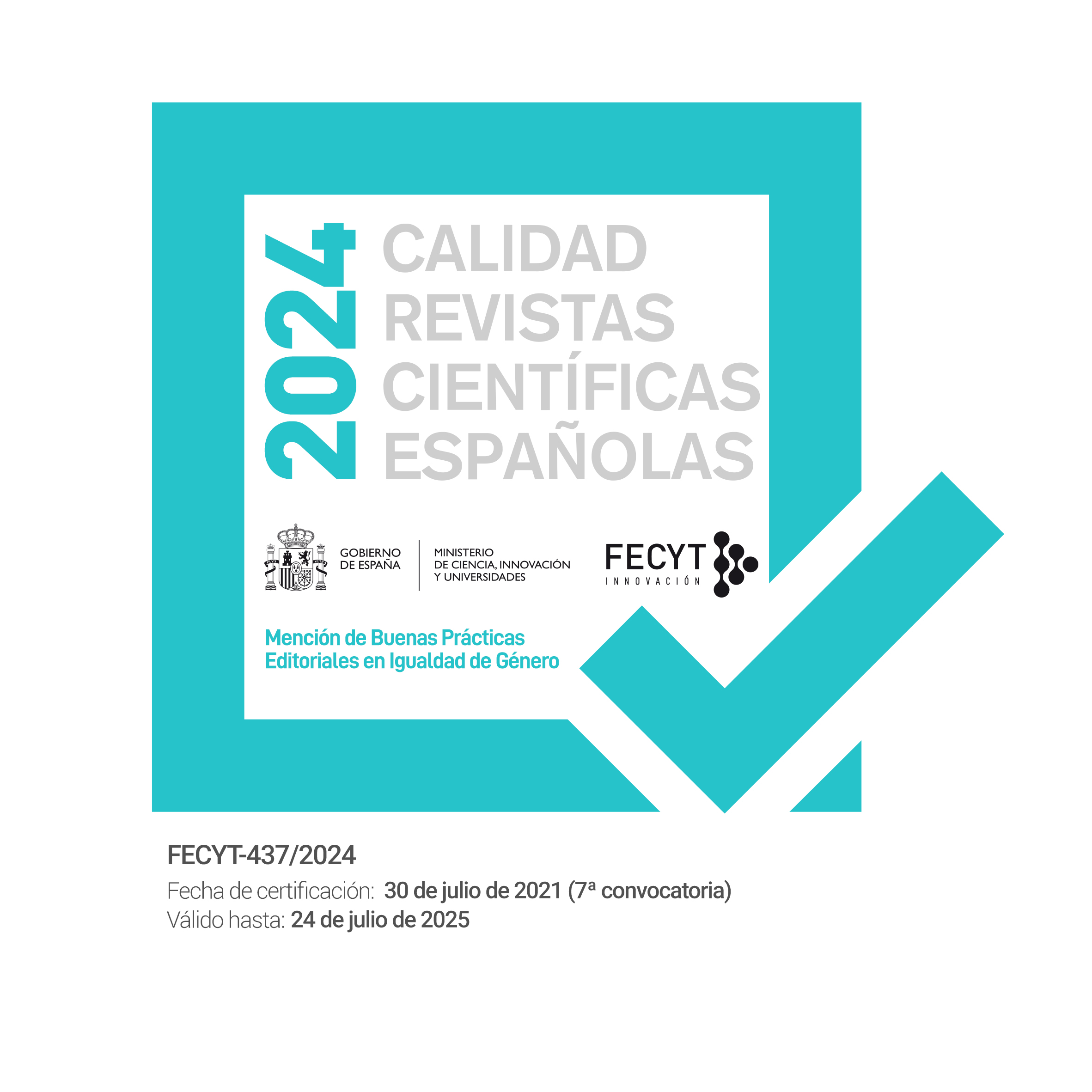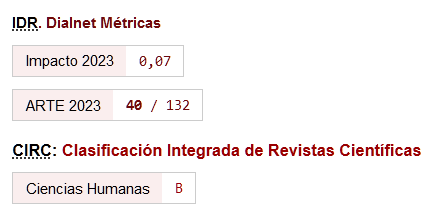Ethic Statement
Copyright and publication ethics policies
Regarding copyright
Authors who have published in Atrio. Revista de Historia del Arte will preserve copyright and will guarantee the journal the right of first publication of their work. Simultaneously, the published work will be subject to the Creative Commons Attribution-NonCommercial-ShareAlike 4.0 International License that allows third parties to share the work as long as both the author and the fact that the work has been published in the journal are mentioned.
In case of co-authorship, authors must specify to the journal the level of contribution in each phase of both the research and writing process. In order to do this, it is recommended to follow the CRediT taxonomy (https://credit.niso.org/).
Regarding plagiarism and fraud policy
The author or licensor exempts the journal from any liability for copyright infringement. Thereby, the author must in every way undertake to assist the journal in the defence of any accusation, extrajudicial and/or judicial measures.
The journal uses the SafeAssign tool to ensure the following policy in order to detect fraud and plagiarism and to manage claims. To this end, SafeAssign will analyze every submission received by the platform in order to determine the percentage of coincidence regarding other publications. The editorial board will examine the report provided by SafeAssign and will determine whether the article should continue with the editorial process or not. Should plagiarism is detected, the author will be informed.
Plagiarism is understood as the use of ideas, words, works or data of another person without being correctly cited. Furthermore, the falsification of data and the act against copyright and intellectual property rights will be considered as scientific fraud.
Regarding ethical statement
On authorship and contributions
Everyone can have access to the submission guidelines. Authors will preserve their copyright and will be responsible for their content, along with guaranteeing the journal the right of first publication of their work.
Papers will go through a double-anonymized peer review process and the final decision will be taken by the editorial board. The editorial board will also be able to reject papers without resorting to external evaluation in case they do not meet minimum quality standards, do not meet journal’s objective or contain plagiarism.
On handling complaints, claims and appeals
Complaints, claims and appeals will be dealt with within the editorial board. The members will study the evidence, try to solve each specific case and propose, if necessary, evaluators following a double-anonymized peer review system. The results and communications throughout the process will be made through the journal’s e-mail.
On conflicts of interests / competing interest
Both the members of the editorial board and the reviewers will refrain from handling or reviewing a paper if there is any kind of interest towards the author (personal or work relations).
On data sharing and reproducibility
Papers submitted to Atrio must be the result of original research, indicating when the ideas belong to a previously published work. Authors are responsible for not inventing, copying, manipulating or distorting the data presented in their investigation as plagiarism, in any form, constitutes serious ethical misconduct. Should this happen, the editorial board will take action as it deems appropriate.
If an article is signed by several authors, the acknowledgement of every author and their responsibility for the work must be guaranteed. Furthermore, authors must cite the source of the graphic material and have the necessary reproduction permissions, as well as they must indicate the funding sources that have made the studio possible. Published articles will be available on the journal’s webpage and will be licensed under Creative Commons.
On ethical oversight
Authors of papers submitted to Atrio must guarantee that they are their own, original and unpublished work, failing which the journal will take action as it deems appropriate.
Reviewers must understand that they are working with a confidential document and may not disseminate or use its information. Their role will be to judge objectively and disinterestedly the sections indicated in the evaluation form within the stipulated deadline (see guidelines for reviewers), as well as to indicate if they detect any similarity, plagiarism, falsification, etc. regarding other works.
On intellectual property
Authors must preserve their copyright and the journal undertakes to respect their intellectual property at all times by indicating it when necessary. The editorial board will be in charge of avoiding malpractice and managing the reception, evaluation and editing of articles in an impartial and confidential manner, as well as respecting intellectual independence.
On the management of post-publication discussions and corrections
The editorial board is always at the disposal of the authors for any post-publication editorial discussion and to consider the necessary corrections.
For the above reasons, Atrio. Revista de Historia del Arte undertakes to meet every criteria established by the Committee on Publication Ethics (COPE).












